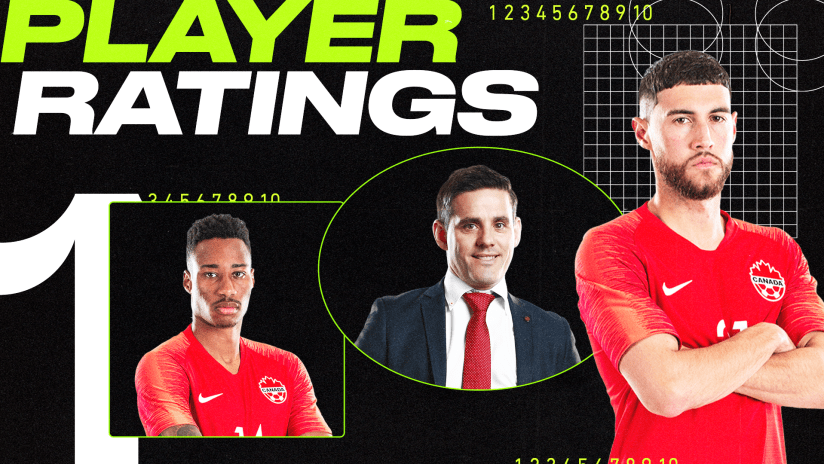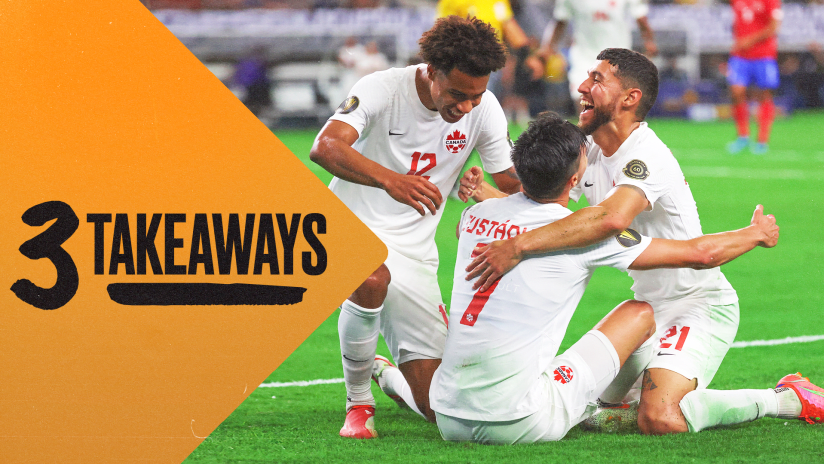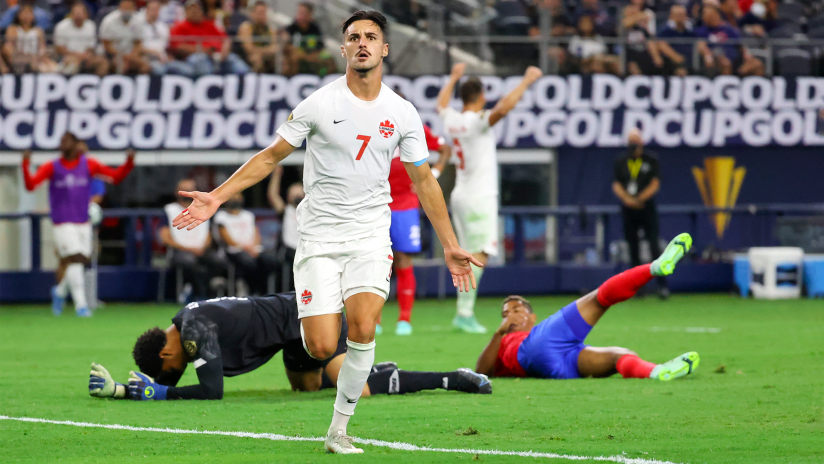As the old adage goes, you learn more about yourself in defeat than victory. Canada are hoping that’s the case in Sunday’s quarterfinal showdown with Costa Rica (7 pm ET | FS1, Univision, TUDN) at the 2021 Concacaf Gold Cup.
Having lost 1-0 to the United States in its Group B finale, the Canadian post-match view was mixed. On one hand, the opening 25 minutes – which included conceding the deciding goal after 20 seconds – were disastrous. On the other hand, the response was valiant, and Canada controlled the rest of the game.
“It’s hard,” Canada coach John Herdman said after the loss. “I think it’s a valiant effort and there’s a bit of pride in there, but at the same time, we have to win these games.”
"We asked them a lot of questions.”
But considering US goalkeeper Matt Turner only faced three shots on target and this was an experimental American squad, it’s fair to question how the quarterfinal against a slightly shorthanded, but veteran Costa Rican side will transpire.
That being said, last Sunday’s match was the first of at least 16 high-profile Concacaf games for Canada from now until the end of World Cup qualifying. Managing specific in-game situations against marquee opponents is necessary to succeed, and Les Rouges proved they could adjust. Incisiveness in the final third was just lacking on the day.
“I do think we have to be more clinical in the box and finish the chances that we do create,” said midfielder Liam Fraser. “Because I felt we had a lot of opportunities to either get the ball in and get a shot off and we’re not doing so.”
Through three games, Canada are averaging 0.69 open-play expected goals (xG) per 90 minutes, according to data from Opta. Tournaments tend to offer fewer opportunities from open play, although with the razor-thin margins of the knockout stage, Fraser’s comments are a constructive criticism ahead of a pivotal match for an attack with a point to prove.
Down two forwards in Cyle Larin and Ayo Akinola, who suffered injuries against the US, Herdman faces a couple of dilemmas. The mission of replacing Larin’s 10 goals in the calendar year is a tricky one, even with a ready-made replacement in Lucas Cavallini.
That’s because Herdman is saddled with a crucial decision: Does he switch from the 3-5-2 – in a knockout match – to deploy Tajon Buchanan as a winger? It could behoove Junior Hoilett, Theo Corbeanu and Tyler Pasher, too. Cavallini would also benefit as a striker who thrives on receiving early crosses, so being flanked by marauding fullbacks and a pair of dynamic wingers would be a godsend for the Vancouver Whitecaps forward.
Defensive solidity is still imperative, of course, so that could tilt the scales one way or the other.
However Canada approach the game tactically, it’s almost certain they will welcome back Stephen Eustaquio to the midfield after he was suspended for the loss to the US. Mark-Anthony Kaye should be in contention to start as well after the LAFC midfielder wasn’t risked, likely due to his yellow-card warning. Those would be game-changing revisions given how the Americans bossed the Canadian midfield in the early stages of their match.
That could be the key to victory for either side. If Canada want to shut down Joel Campbell’s threat on the counter-attack, it will need the midfielders to provide cover for the fullbacks, otherwise goalkeeper Maxime Crepeau might be in for a long evening in Arlington.
In turn, though, more ball-progressing midfielders mean a stronger attack. Having shown the mental fortitude to swing the momentum of the match against the US, Canada will need to add killer instinct around the box if they hope to reach their first semifinal since 2007.












